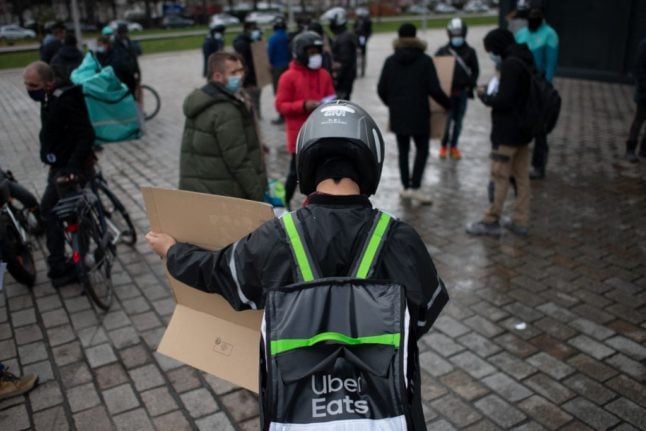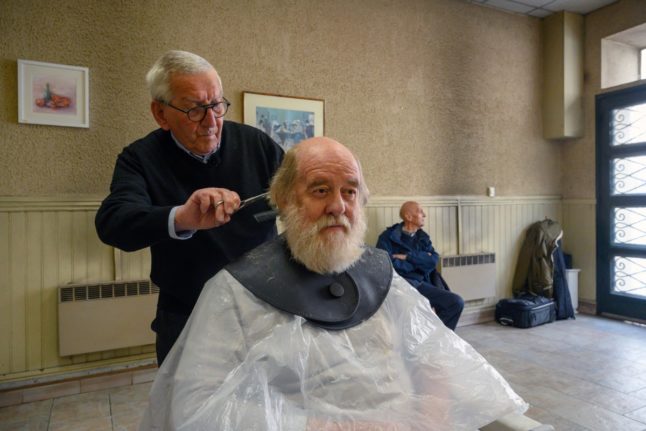Many said they had been working for years with Uber, claiming the company was well aware that its riders are often undocumented migrants who use “borrowed” ID to open their accounts.
“I was disconnected two weeks ago, but I worked all through the lockdowns [during the Covid-19 pandemic],” 34-year-old Osseni Kone from Ivory Coast said outside the Uber Eats offices in central Paris.
“I’m asking Uber to regularise my situation so I can work freely,” he said.
The US-based company is facing growing pressure across Europe to hire riders outright as employees, instead of independent contractors, to respect the rights of “gig economy” workers.
In France, that prompted Uber Eats to audit its rider accounts after signing a charter with the government to “harmonise the oversight practices” of its platform.
It said 2,500 of the roughly 60,000 accounts overall were identified as fraudulent, and said riders whose accounts were blocked could still appeal.
“I’ve worked like this for them for three years,” said Ismael Meite, 32, also from the Ivory Coast.
“They knew full well that the ID card and the profile photo were not identical but they had no problem with it. We did a huge amount of work during Covid and now they say we’re not in order?” he said.
A colleague, also from Ivory Coast but who asked for anonymity, denounced a “brutal” dismissal, showing his 99 percent approval rating from clients on the Uber Eats app.
Uber and other delivery service operators insist the workers are self-employed, and courts across Europe have issued contradictory decisions — sometimes forcing companies to provide standard labour contracts, at other times upholding their status as independent contractors.
Last April in France, a Paris court fined the British meal delivery group Deliveroo after finding it guilty of “undeclared labour” for using freelance riders who should have been classified as employees, depriving the state of millions of euros in payroll taxes.



 Please whitelist us to continue reading.
Please whitelist us to continue reading.
Member comments